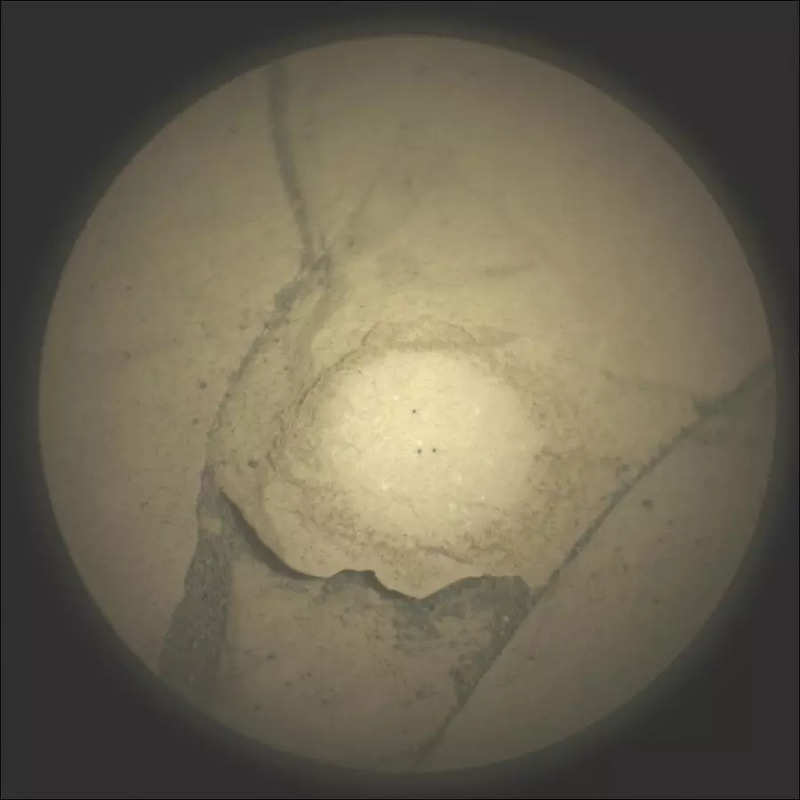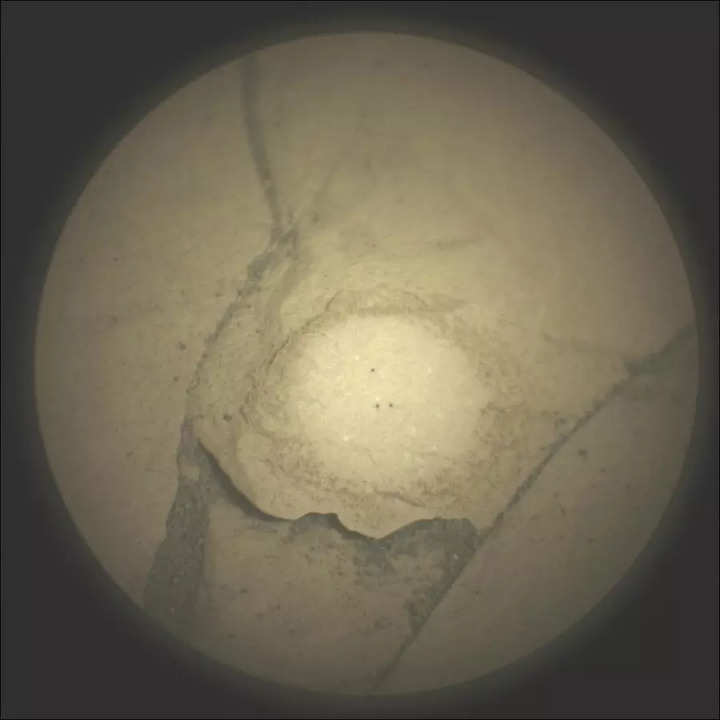

Nasa has laser marked graffiti on Martian rocks to identify rock samples that will be brought to Earth for study.
Nasa’s Perseverance rover is currently collecting Martian samples from the 45 kilometres- wide Jezero crater for future return to Earth, along with hunting for signs of ancient Mars life.
The samples will be brought to Earth, perhaps as early as 2031, by a joint Nasa-European Space Agency mission campaign.
However, for the rock collection, original orientation is necessary, said Roger Wiens, Principal Investigator, SuperCam/Co-Investigator, Sherloc instrument at Purdue University, in a statement.
It is majorly because samples taken from fine-grained surfaces are difficult to distinguish.
“For each Mars rock core sample that is returned, we need to know its original orientation,” Wiens said.
“If the surfaces of those core samples have easily recognisable features, that’s no problem. That has been the case with the cores collected, so far. However, if the surface is fine-grained, there may be nothing to distinguish its rotational orientation.
In that case, we need to make artificial markings on the surface.
“We don’t have a dark marker pen, but we do have a pulsed laser,” he added.
Wiens also revealed that the first alphabet to be engraved was ‘L’.
“If your name begins with “L” you will like this post about the first letter to be laser engraved on Mars,” he said.
In June, Perseverance used a laser that’s part of its mast-mounted SuperCam instrument to zap three dots in the shape of the letter L into a rock.
“With the dry run successful, we are ready to use the procedure to mark future samples,” Wiens said.
The rocks brought back could also help researchers reconstruct the history of Mars’ magnetic field and its impact on the planet’s atmosphere.
FacebookTwitterLinkedin